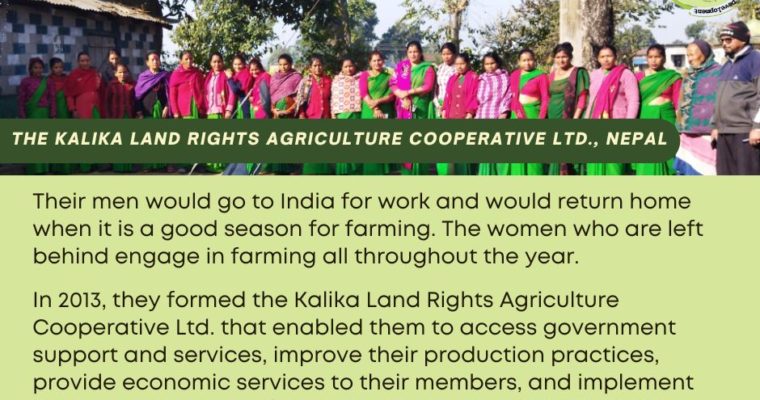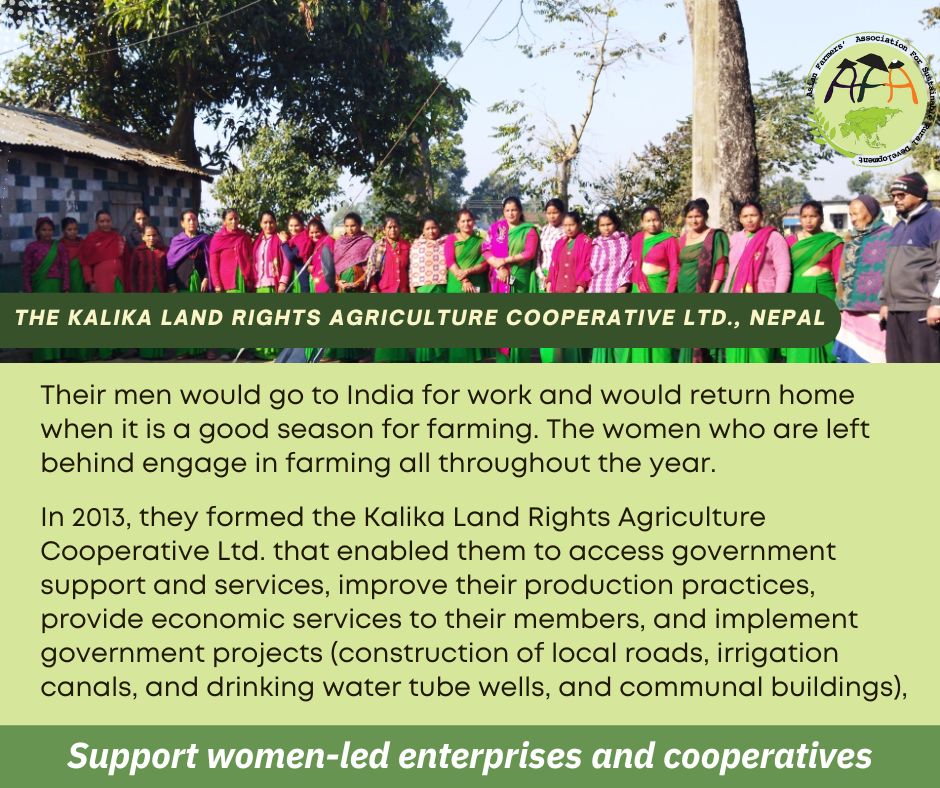An organized cooperative can enable women to access government services and support. The women farmers from the indigenous groups and “so-called”, lower caste, in Kailali District in Nepal have been discriminated against for a long time. They were unable to access support because they live on government lands with no land certificates. They set up the Kalika Land Rights Agriculture Cooperative Ltd. which allowed them to access government subsidies and services and provide economic services to their members, and more important partner with local government to implement projects such as the construction of local roads, irrigation canals, drinking water tube wells, and communal buildings.
Most members are landless and women. Currently, there are 49 members (46 females, 3 males) composed of Dalit (19), indigenous people (14), and the so-called higher caste (16). The cooperative prioritizes community members, both women, and men, that are resource-poor and are willing to participate in the programs such as savings and credit programs, agriculture production, and entrepreneurship development. Their men would go to India for work and would return home when it is a good season for farming. The women who are left behind engage in farming all throughout the year.
Read the case study: Case Study_Kalika Bhumi Adhikari Sahakari Santha, Kailali
Anita Kumari Chaudhary is a dedicated member of the Kalika Land Rights Agriculture Cooperative in Nepal. Through her affiliation with the cooperative, she gained essential tailoring skills and ventured into entrepreneurship with a cooperative-backed loan. Today, she not only manages her thriving business but has also created job opportunities by employing her own staff. In addition, Anita is paying it forward by empowering other women and providing them with the training they need to enter the world of entrepreneurship and self-sufficiency.
Rekhadevi Bohora serves as the secretary of the Kalika Land Right Agriculture Cooperative, an essential role in her community. Inspired by her cooperative’s support, she embarked on an entrepreneurial journey by securing a loan. With these funds, she established her own shop, a testament to her determination and the cooperative’s assistance. Her business success has allowed her to provide a brighter future for her family, as she can now afford to send her children to school, and her husband no longer needs to seek employment in India.





Comments are closed